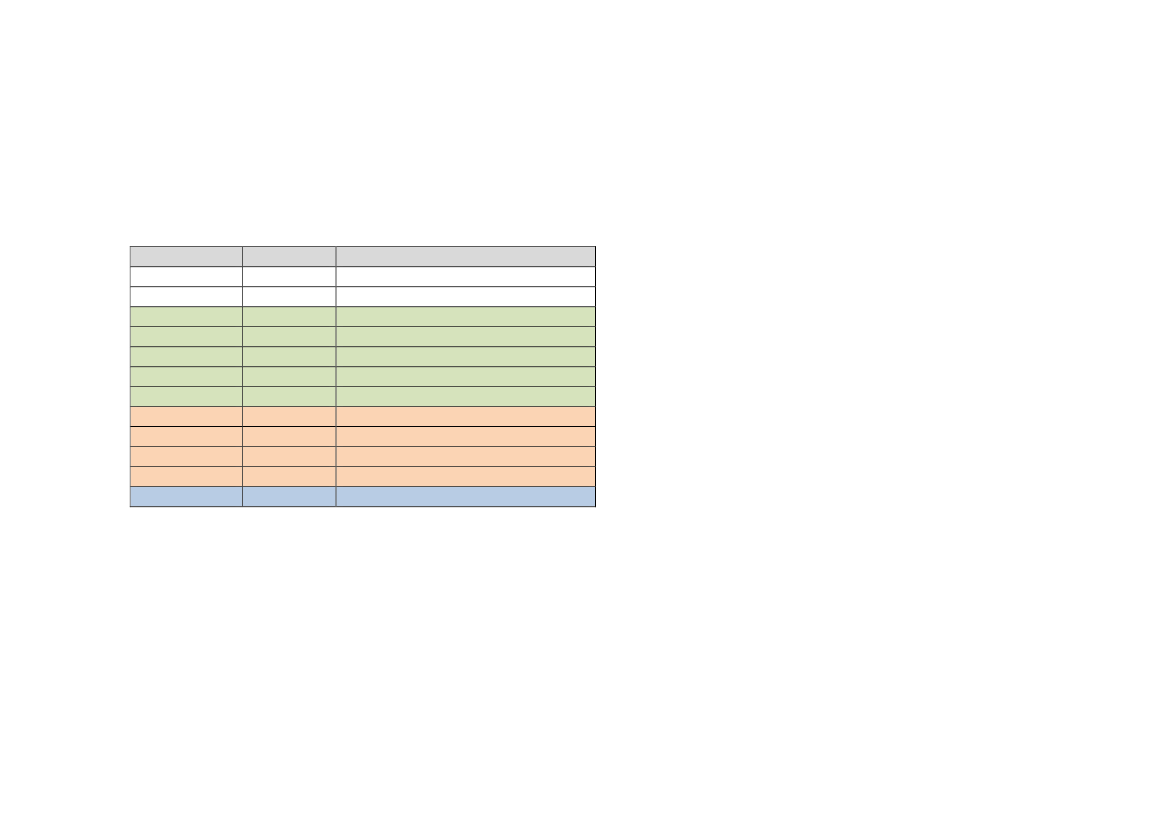
Template for comments on draft ESRS Delegated Act
The draft delegated on European Sustainability Reporting Standards (ESRS) comprises: the main text of the legal act; twelve draft standards
(annex I); and a glossary of abbreviations and defined terms (annex II).
The twelve draft standards in Annex I are:
Group
Cross-cutting
Cross-cutting
Environment
Environment
Environment
Environment
Environment
Social
Social
Social
Social
Governance
Number
ESRS1
ESRS2
ESRS E1
ESRS E2
ESRS E3
ESRS E4
ESRS E5
ESRS S1
ESRS S2
ESRS S3
ESRS S4
ESRS G1
Subject
General Requirements
General Disclosures
Climate
Pollution
Water and marine resources
Biodiversity and ecosystems
Resource use and circular economy
Own workforce
Workers in the value chain
Affected communities
Consumers and end users
Business conduct
Each standard is divided into numbered paragraphs. Each standard
also has an appendix A containing “application requirements” which are
numbered as AR 1, AR 2 etc. Some standards also contain additional appendices.
To facilitate analysis of comments, respondents are kindly requested to use the simple template below when sending their comments.